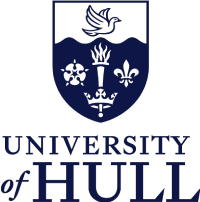About the Project
Summary of Cluster
The Astrophysical Data Science Cluster (ADSC) is an exciting new development for the University of Hull’s world renowned E.A. Milne Centre for Astrophysics. A series of five Grand Challenges underpin the ADSC, each of which are aligned with the science roadmaps shaping the science & technology landscape for the UK and Europe for the coming decade. The successful candidates will work alongside international leaders striving to identify the physics driving the formation and evolution of galaxies, stars, and planets, with cross-disciplinary opportunities characterising the development of complex biological life and astrochemistry. A blend of computational and experimental approaches will be adopted, employing Big Data analytical techniques and multi-dimensional data mining, with access provided to one of the country’s most powerful supercomputers and some of the best international telescopes, through our various partnerships. One of the most ambitious computational experiments ever undertaken – the Horizon Run – will ensure opportunities to data mine unprecedented peta- and exa-scale datasets, all within one of the country’s most dynamic, supportive, and social research centres. An extremely generous research budget (£9k) is provided to all successful candidates, above and beyond the stipend. Interested applicants should contact Professor Brad Gibson ([Email Address Removed]) for additional details.
PhD Scholarship project 1: Data Mining the Horizon Run
The Horizon Run is one of the most ambitious simulations ever undertaken. In collaboration with Milne Centre and the Korea Institute for Advanced Study, ~100 million core hours will be used to reproduce the Universe and its galaxies at unprecedented resolution. The successful candidate will lead the development of data mining algorithms for exploring the chemical abundance patterns of the stars within the simulated galaxies. This Galactic Archaeology experiment will allow us to isolate the physics driving the evolution of the Milky Way, and provide significant overseas time with our partners in Seoul and Paris.
Applicants should have at least a 2.1 undergraduate degree in Physics, Chemistry, Computational Science, or related discipline, together with relevant research experience. It is anticipated that the successful applicant will have a 1st class undergraduate degree or Masters level qualification. Interested applicants should contact Professor Brad Gibson ([Email Address Removed]) for additional details.
PhD students at the University of Hull follow modules for research and transferable skills development and gain a Masters level Certificate, or Diploma, in Research Training, in addition to their research degree.
Interviews will be held the final two weeks of February 2018; initial offers will be made by 5th March 2018, with decisions returned by 31st March 2018, in line with the UK’s Science & Technology Facilities Council guidelines.
Funding Notes
Studentships will start on 17th September 2018.
Full-time UK/EU PhD Scholarships will include fees at the ‘home/EU' student rate and maintenance (£14,553 in 2017/18) for three years, depending on satisfactory progress.
Full-time International Fee PhD Studentships will include full fees at the International student rate for three years, dependent on satisfactory progress.

 Continue with Facebook
Continue with Facebook

